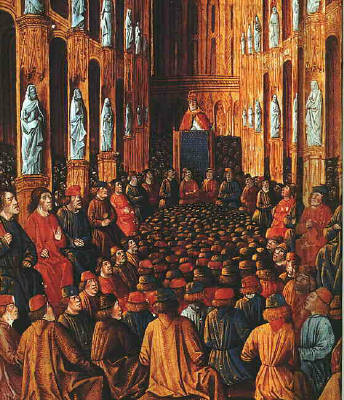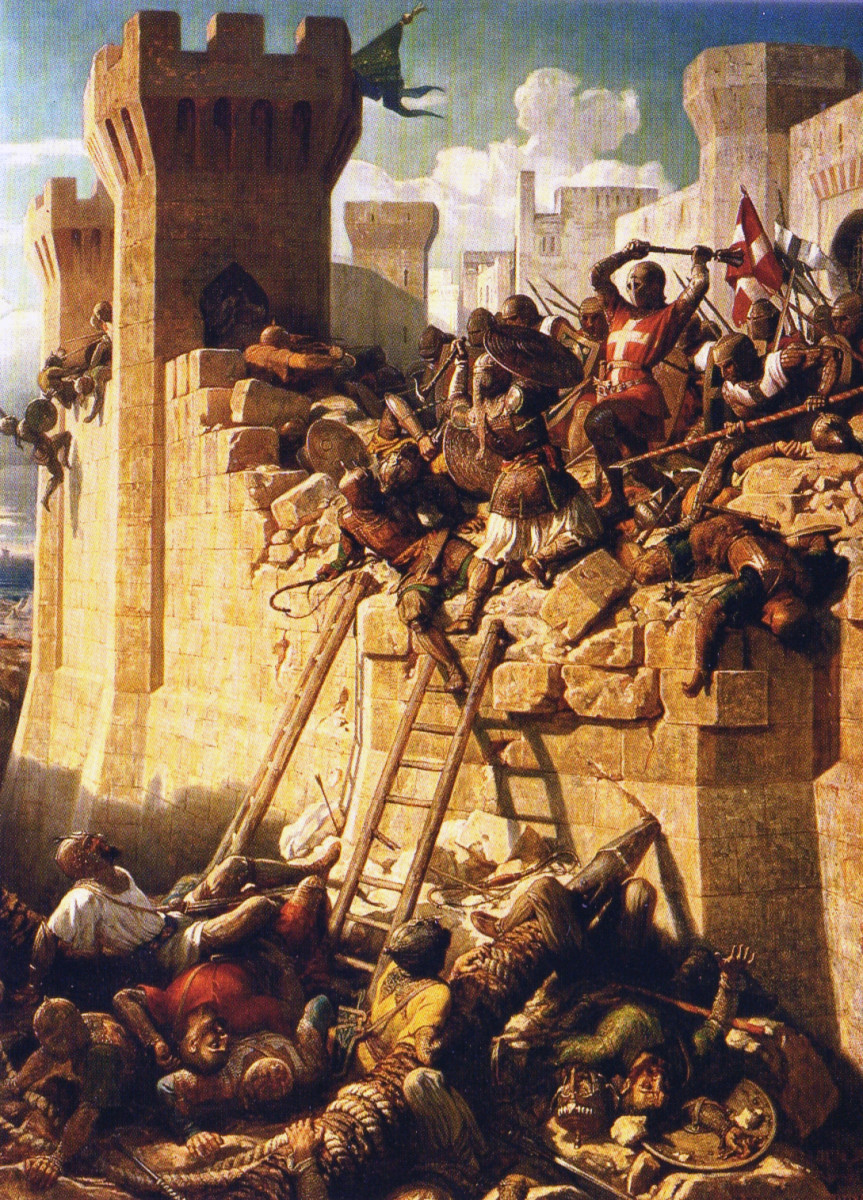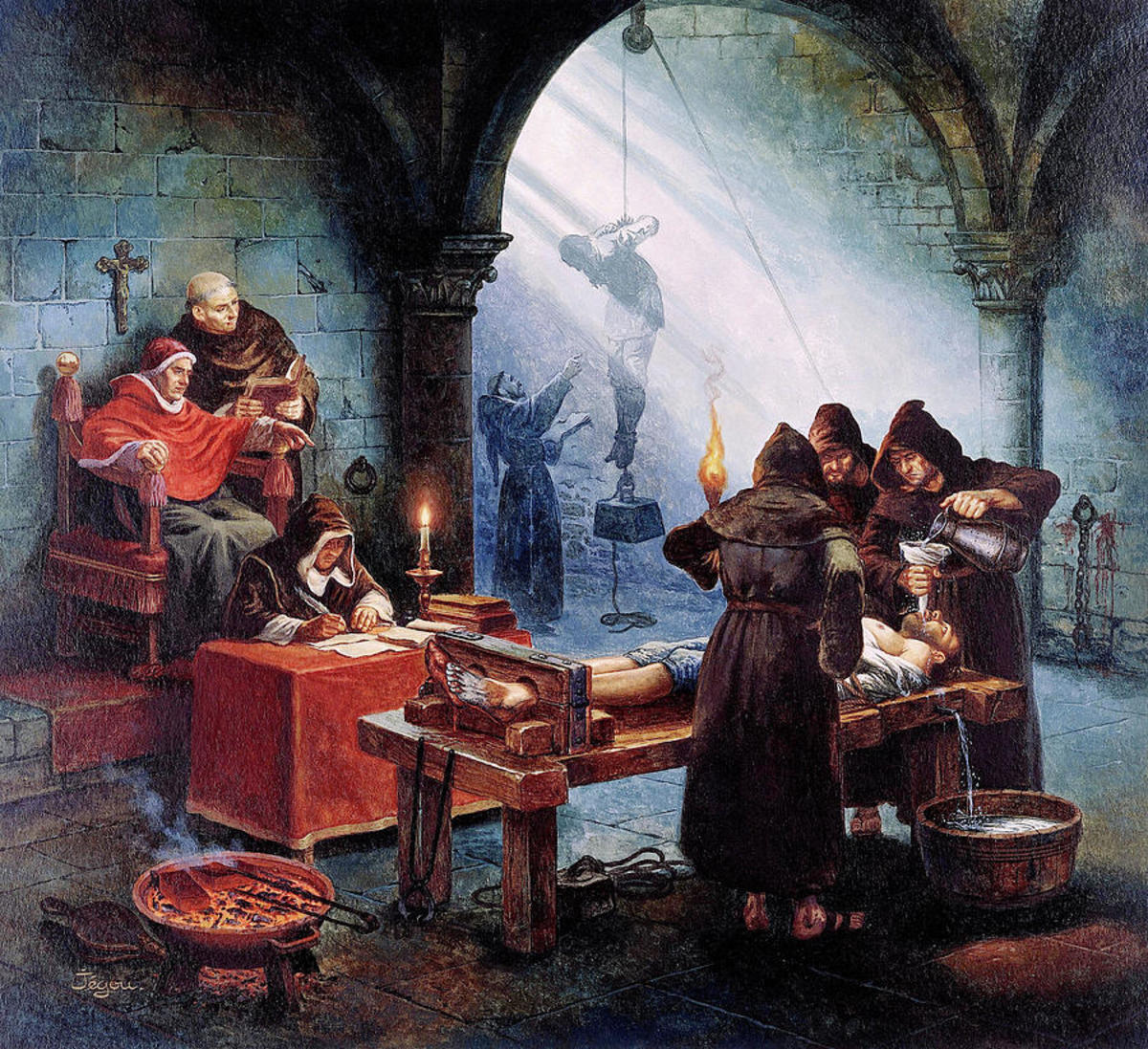Chronicles of the Crusades: A Look at the World before Separation of Church and State

Chronicles of the Crusades gives the modern American reader a glimpse into a world before separation of church and state was the norm. These translations prove that just the opposite was true in the era of authors Villehardouin and Joinville. Rather than struggling to maintain a separation of church and state, the crusading Middle Ages struggled to incorporate the two, thus making these crusades equally political and religious expeditions.
This combined political/religious effort may or may not have been the goal of the first crusade initiated by Pope Urban II, but it inevitably was the result. The first crusade was to help protect the Byzantine Empire from the invading Turks with the additional goal of reclaiming the city of Jerusalem for Christianity. One might argue that the primary goal of the first crusade quickly became the reclamation of Jerusalem due to the pope’s desire to protect the Christian relics there. While the initial aspirations were for protective purposes, the victory indeed expanded the Holy Roman Empire, making it a political achievement as well as a religious one. So it is sensible to perceive the crusades such as those detailed by Villehardouin and Joinville in the same manner, as both politically and religiously charged.

VILLEHARDOUIN'S STORY
In his account, Villehardouin tells of a holy Frenchman, a priest named Fulk. As an inspirational missionary, Fulk spread the Word of God throughout the Isle-de-France and nearby.1 According to Villehardouin, Pope Innocent learned of the compelling priest and directed him to preach the crusade.His account does not tell why the pope ordered the crusade. With his limited perspective as a soldier, the events up to Pope Innocent’s order are not discussed by Villehardouin.
Obviously, a win in the crusade would expand the Holy Roman Empire, a very political desire. The pope’s offer to dissolve all sins that had been confessed used religion to recruit troops for the political goal.2 Those who died in battle would die fighting for the cause, enough to be honored eternally as well. It was a win-win situation for the crusaders. In contrast, today’s secular American culture rewards military service with benefits like healthcare and post-secondary education opportunities with no promise of eternal salvation. Of course, modern thinking is tolerant of religious diversity while the pope during the fourth crusade was striving to keep Christianity at the forefront. Despite modern tolerance of religion, we still see crusades. The most recent was President George W. Bush’s crusade against terrorism. While the modern crusade against terrorism was not intended to flex a religious muscle, it was intended to exert political power over a terrorist group with religious associations. Whether one believes Bush’s crusade was successful or not depends largely on political views, and whether or not the person supports a war targeting Iraq’s Saddam Hussain rather than the provoking terrorist group leader Osama bin Laden.
In the six-year crusade that spanned from 1248 to 1254, King Lewis does not seem to have set out with the dual goal of religious/political purpose. Of course, it can be argued that there is a tinge of political purpose any time a king sets out with warriors and a plan to invade territories. Regardless, the translator says that King Lewis’ intent was clear. He simply chose to take up the cross and spread the Word of God.3Considering King Lewis’ political position, his action had both political and religious implications.
Given the difference in the goals of each of the crusades examined, it is easy to determine that the two authors had different purposes for writing their personal accounts. Villehardouin’s text includes a lot of attendance information. While it is not necessarily fun to read name after name of those who arrived or attended, it is vital information about the fourth crusade.Villehardouin tells his account from the third person point of view, even when talking about himself. His account attempts to preserve the crusade itself for history and possibly to justify the events for himself and others.
JOINVILLE'S STORY
Joinville also wrote his account to preserve history but the subjects are different. Instead of accounting for the crusade itself, he focuses on the life, teachings, and good deeds of King Lewis. He was forthright about his purpose for writing and clearly documented that the queen requested the account to pass on to her son. While it is not meant to entertain, the story is more enjoyable to read that that ov Villehardouin.
Perhaps Joinville’s account of his crusade is easier to read because he wrote it as an older man looking back on the events with fond recollection of King Lewis. Penning the narrative at age eighty-five, he wrote like he was telling a story of his glory days. Villehardouin wrote his account as a middle-aged soldierwhich explains why his account appears more matter-of-fact and report-like than Joinville’s recollection. 4
COMPARING VILLEHARDOIN & JOINVILLE: FACT VS PRAISE
Despite the differences in writing style, both crusade chronicles are valuable historic documents. Villehardouin, as the soldier recording the events of the fourth crusade, sets out to write facts about the crusade as he witnessed then. Today’s reader can glean a variety of information about the era from his writing. In addition to knowing who took up the cross and when, he offers accounts of stops along the way, most of which are reported in succinct form.He discusses the importance of Fulk in stirring support for the crusade and reports the priest’s death as well. He also outlines brief information about the overthrowing of King Isaac of Constantinople. While he does not weave a yarn like the reader might anticipate from Joinville, he does briefly give details of Alexius tearing out his brother’s eyes then keeping the king and his son locked away in prison so he could have right to the throne. 5 Accounts like these help historians position people and events throughout the era.
In a way, the style of Villehardouin’s account itself is indicative of the era. His military report style of writing indicates a society in which soldiers were valued. Taking up the cross, or joining a crusade, was a righteous cause. Covenants were important to Villehardouin and his contemporaries. They were accustomed to making them in their system of vassalage, or feudalism.
Given the factual reporting offered by Villehardouin, can Joinville’s entertaining tales be valued by historians? Yes, they can. It is natural to assume that the older author, writing fifty years in retrospect, could have forgotten some details or even embellished a little. Plus, the reader must take into account his sole purpose for writing the chronicle – to bring honor to the king’s name. Even with details possibly missing and potential bias toward the king, there is plenty of valuable information for historians in Joinville’s account.First, he gives first-hand insight into King Lewis. By outlining the four times the king put himself in danger of death, Joinville gives the reader a background that shows a king who wanted to lead by example and who placed the safety of his people over that of himself. 6
Why should the reader trust Joinville? Obviously, he is writing a praise of the king, so it would be natural for him to write good things about the king’s morals and leadership. But, Joinville makes his chronicle believable by telling stories about himself that are not always flattering. In these stories, the king usually helps point him figuratively in a better direction. One example is when the king asks Joinville if he would rather be a leper or someone who committed mortal sin. Joinville chose mortal sin because he thought lepers were so vile. The king corrected him and told him to always love God first, then his king, and finally himself.In this example alone, the reader learns that leprosy was a health concern, and that washing the feet of the poor was a respectable charitable service. More importantly, the reader sees exactly what Joinville was tasked to record: that King Lewis was a God-loving man who very much loved all the people of his kingdom. 7
WHAT GOOD ARE THESE TWO DIFFERENT STORIES?
So, despite their style differences and purpose variations, the chronicles written by Villehoudin and Joinville are similar in that both provide valuable accounts of history. Both supply knowledge of their eras, including people, participants, and kingdoms.They are likewise significant as first-hand reports of a period in history that includes the development of European nations and the stretch of Christianity along with the concerns associated with the development of other religions. These documents also provide information about the loyalty of the feudal system. Villehoudin’s documents his account as an act of loyalty to his king. His documentation serves as an indirect act of loyalty to his king, justifying the Christian purpose, the events that occurred and the subsequent loss.Joinville’s fealty is easier to see because he clearly presents his purpose: preserving King Lewis’ memory for the king’s son.
Have you read it?
Have you read Chronicles of the Cruisades?
Notes
1. Jean Joinville, and Geoffry Villehardouin, (Mineola, NY: Dover Publications, Inc., 2007). 1.
2. Ibid.
3. Ibid., xxv.
4. Ibid., xxi.
5. Ibid., xxi.
6. Ibid., 15, 118.
7. Ibid., 123.
Bibliography
Joinville, Jean, and Geoffry Villehardouin. Chronicles of the Crusades. Edited by Sir Frank Marzials. Mineola, NY: Dover Publications, Inc., 2007.








